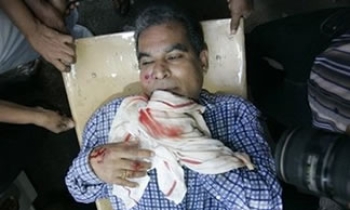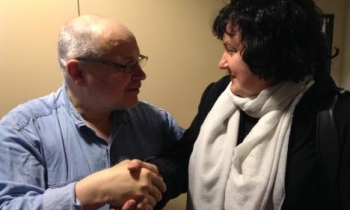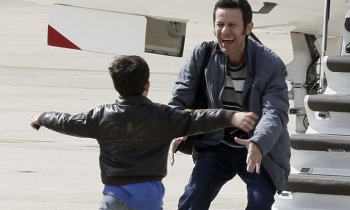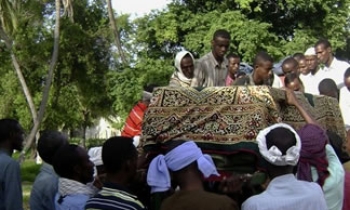Iran has closed down prominent pro-reform daily Shargh (East) three months after it was allowed to resume publicaiton following a ban, its director said on Monday. Shargh is the second publication critical of the government to be shut down since July.
The closure of Shargh coincides with what rights groups and diplomats say is a broad crackdown on dissenting voices in the Islamic state, which is under growing Western pressure over its disputed nuclear programme, Reuters reported.

Iran's Press Supervisory Board banned the daily with immediate effect because of an interview with a poet who has written about homosexuality, the Fars News Agency said. Homosexuality is a crime punishable by death in Iran, which has implemented Islamic sharia law since the 1979 revolution.
Sharq's managing director Mahdi Rahmanian said the authorities had looked for an excuse to close it down. He said the daily had only found out later there were "moral problems" involved in interviewing the female expatriate poet. Saghi Qahraman, a poet now living in Canada, said in the published interview that men should play a bigger role in household activities like taking care of children, and that gender boundaries should be made less strict in Iran.
This interview "with an anti-revolutionary figure, who is famous for promoting anti-morality materials, is the main reason behind the closure of the paper," said Ali Reza Malekian, a Culture Ministry official, according to the official IRNA news agency.
The article itself, published on Saturday under the headline 'Feminine language', did not explicitly touch on homosexuality. Shargh still published an apology on Monday for running the article and said it had been withdrawn from its Internet site.
"This is not something to close a newspaper for," Rahmanian said. "Closing a newspaper for which 400 people worked because of the first mistake it did shows they were closely monitoring us to use the first mistake as a pretext to close it."

The hard-line daily Kayhan described Qahraman as the head of an "Iranian homosexual organization" and a "counter-revolutionary fugitive." Qahraman told Radio Farda that the interview focused on language in literature and on the difference between male and female languages.
"I believe, and I said so during the interview, that our problem is not the substitution of female language with male language," she said. "Generally, gender separation has to stop, and language itself has to determine its gender. This was said during the same interview, that it doesn't benefit male or female language. Generally, abolishing gender separation benefits human identity."
Iran says it allows free speech, but journalists say they have to tread carefully between a growing number of "red lines" to avoid closure. Iran's culture minister in July said there were signs of a "creeping coup" in the country's press. Iran has accused its arch foe the United States of plotting a "soft revolution" against its clerical leadership, with the help of intellectuals and others inside the country.
Shargh was first closed in September last year for failing to replace Rahmanian, who was accused of publishing "blasphemy" and insulting officials. It republished in May after the ban was lifted even though he remained in the post. "Now we have understood that we should not publish a newspaper," Rahmanian told Reuters. "This is the last newspaper that I and my friends have."

A Shargh journalist said the ban had been expected: "There was a lot of pressure on the newspaper for its critical articles about the government."
In early July, Iran shut down the pro-reform Hammihan (Compatriot) newspaper, two months after it was launched, on a legal technicality. Since 2000, Iran has closed more than 100 publications, accusing many of being "pawns of the West." Many subsequently reopened under different names.
In another government crackdown on what it deems immoral behavior, Iranian police last week raided a rock concert in a town near Tehran and detained more than 200 concertgoers and performers, the Voice of America (VoA) reported.
One official was quoted in Iranian media as calling the concert "satanic." A government prosecutor said drugs, alcohol and "obscene" compact discs were seized at the concert, staged in a private orchard. Some women were filmed at the concert not wearing the modest clothing and headscarves required by law since the 1979 Islamic revolution, the VoA report said.









